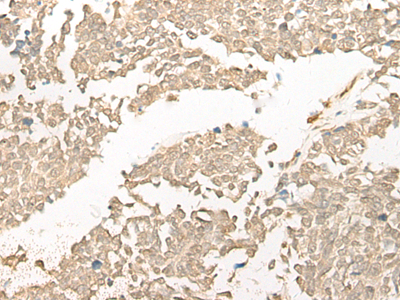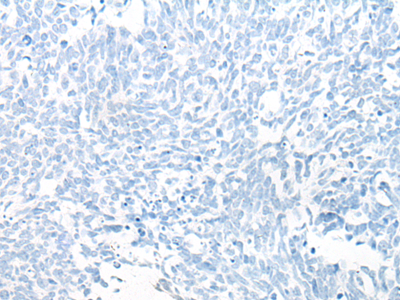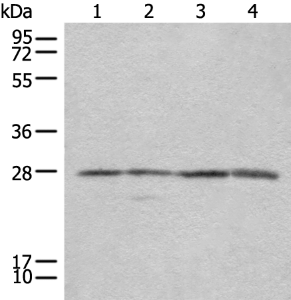| Cat.#: S218619 |
| Product Name: Anti-COMT Rabbit Polyclonal Antibody |
| Synonyms: HEL-S-98n |
| UNIPROT ID: P21964 (Gene Accession – BC011935 ) |
| Background: Catechol-O-methyltransferase catalyzes the transfer of a methyl group from S-adenosylmethionine to catecholamines, including the neurotransmitters dopamine, epinephrine, and norepinephrine. This O-methylation results in one of the major degradative pathways of the catecholamine transmitters. In addition to its role in the metabolism of endogenous substances, COMT is important in the metabolism of catechol drugs used in the treatment of hypertension, asthma, and Parkinson disease. COMT is found in two forms in tissues, a soluble form (S-COMT) and a membrane-bound form (MB-COMT). The differences between S-COMT and MB-COMT reside within the N-termini. Several transcript variants are formed through the use of alternative translation initiation sites and promoters. |
| Immunogen: Fusion protein of human COMT |
| Applications: ELISA, WB, IHC |
| Recommended Dilutions: IHC: 25-100;WB: 500-2000;ELISA: 5000-10000 |
| Host Species: Rabbit |
| Clonality: Rabbit Polyclonal |
| Isotype: Immunogen-specific rabbit IgG |
| Purification: Antigen affinity purification |
| Species Reactivity: Human |
| Constituents: PBS (without Mg2+ and Ca2+), pH 7.4, 150 mM NaCl, 0.05% Sodium Azide and 40% glycerol |
| Research Areas: Metabolism, Neuroscience |
| Storage & Shipping: Store at -20°C. Avoid repeated freezing and thawing |

Immunohistochemistry analysis of paraffin embedded Human lung cancer tissue using 218619(COMT Antibody) at a dilution of 1/25(Nucleus and Cytoplasm). | 
In comparision with the IHC on the left, the same paraffin-embedded Human lung cancer tissue is first treated with the fusion protein and then with 218619(Anti-COMT Antibody) at dilution 1/25. | 
Gel: 12%SDS-PAGE, Lysate: 40 μg;
Lane 1-4: Hela, 293T, Jurkat and 231 cell lysates;
Primary antibody: 218619(COMT Antibody) at dilution 1/350;
Secondary antibody: Goat anti rabbit IgG at 1/8000 dilution;
Exposure time: 10 seconds | |
|
